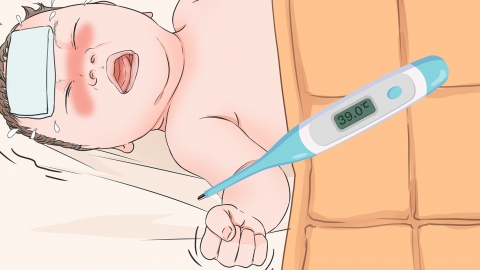What are the three stages of recovering from a fever?
Fever, also known as pyrexia, generally does not involve a recognized concept of "three stages of improvement." The typical recovery process from fever includes several phases: the rising phase, the sustained high-fever phase, the defervescence phase, the symptom relief phase, and the recovery phase. If in doubt, it is recommended to seek medical consultation promptly. Detailed explanations are as follows:

1. **Rising Phase**: After pathogen invasion, the body initiates an immune response. The thermoregulatory center in the brain raises the body's temperature set point, leading to symptoms such as chills, shivering, and cold extremities. Body temperature gradually increases from normal levels to its peak. This stage may last from several hours to a few days.
2. **Sustained High-Fever Phase**: Once the temperature reaches its peak, it remains relatively stable. Shivering typically subsides, but symptoms such as dry mouth, headache, and fatigue may persist. During this phase, immune cells actively combat the invading pathogens. The duration depends on the severity of the infection and the individual’s immune strength.
3. **Defervescence Phase**: As the pathogen is gradually controlled, the thermoregulatory center resets to a normal temperature set point. The body lowers its temperature through mechanisms like sweating. Body temperature gradually returns to the normal range, and perspiration increases accordingly. It is important to replenish fluids during this phase.
4. **Symptom Relief Phase**: After body temperature normalizes, associated discomforts such as headache, muscle aches, and sore throat begin to subside. Appetite improves and mental well-being recovers, although mild fatigue may still persist. Physical function gradually returns to baseline.
5. **Recovery Phase**: All symptoms have fully resolved, appetite and energy levels return to normal, and physical strength gradually rebuilds. The immune system continues to consolidate its defenses. Adequate rest and proper nutrition are essential during this phase to prevent overexertion.
During fever, closely monitor body temperature and ensure timely hydration and electrolyte replacement. Physical cooling methods or physician-prescribed antipyretic medications can be used when fever is high. Seek immediate medical attention if fever lasts more than three days or is accompanied by difficulty breathing or altered consciousness. Avoid strenuous exercise during recovery and maintain a regular sleep schedule to support full recovery.




